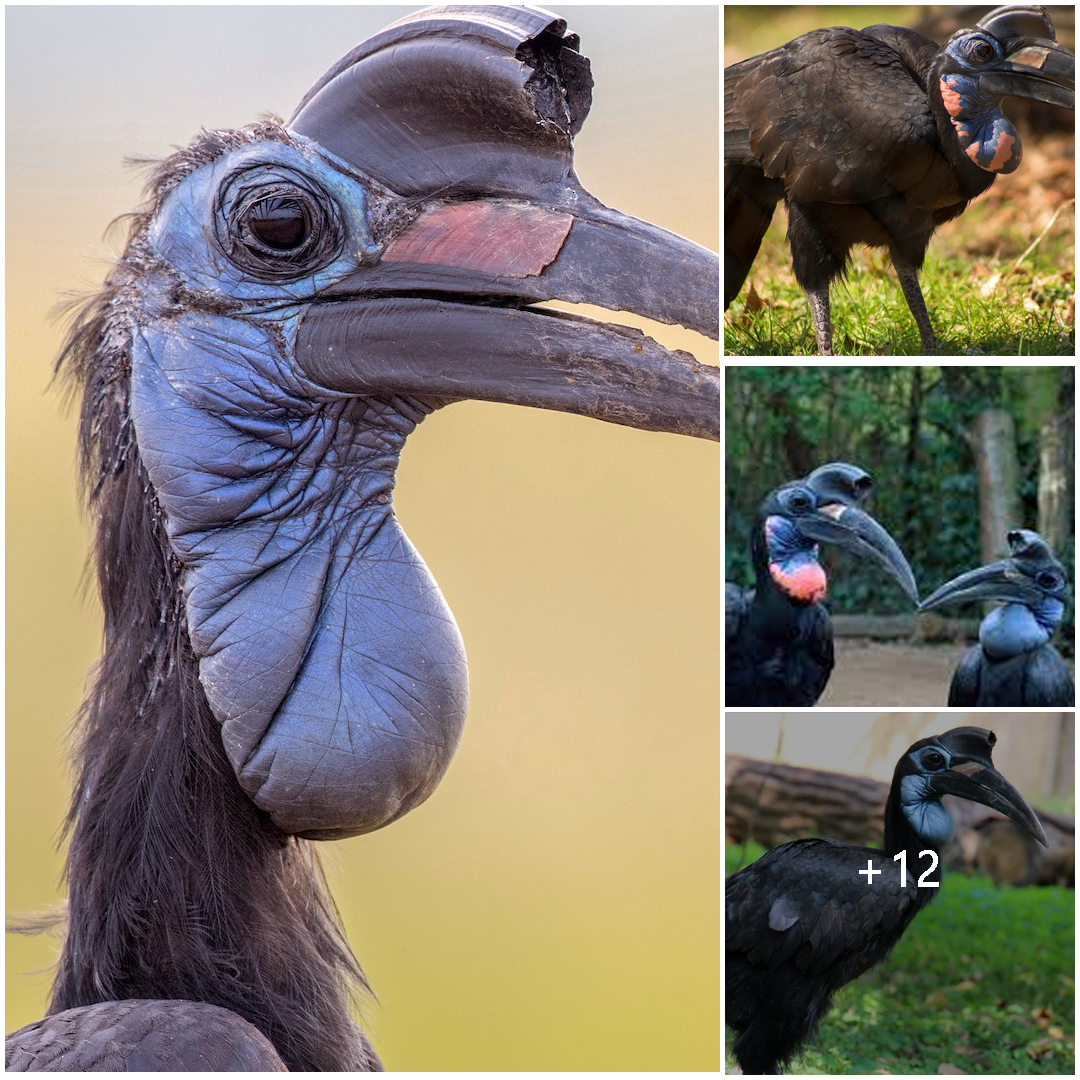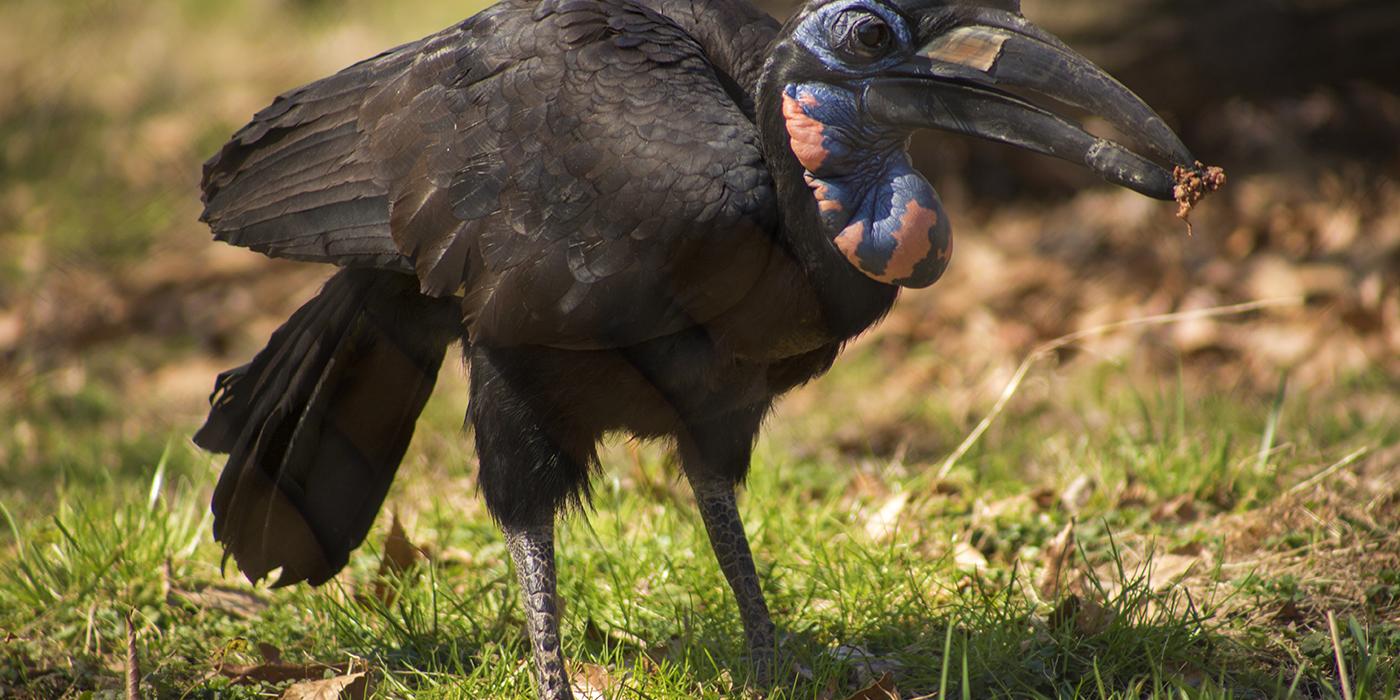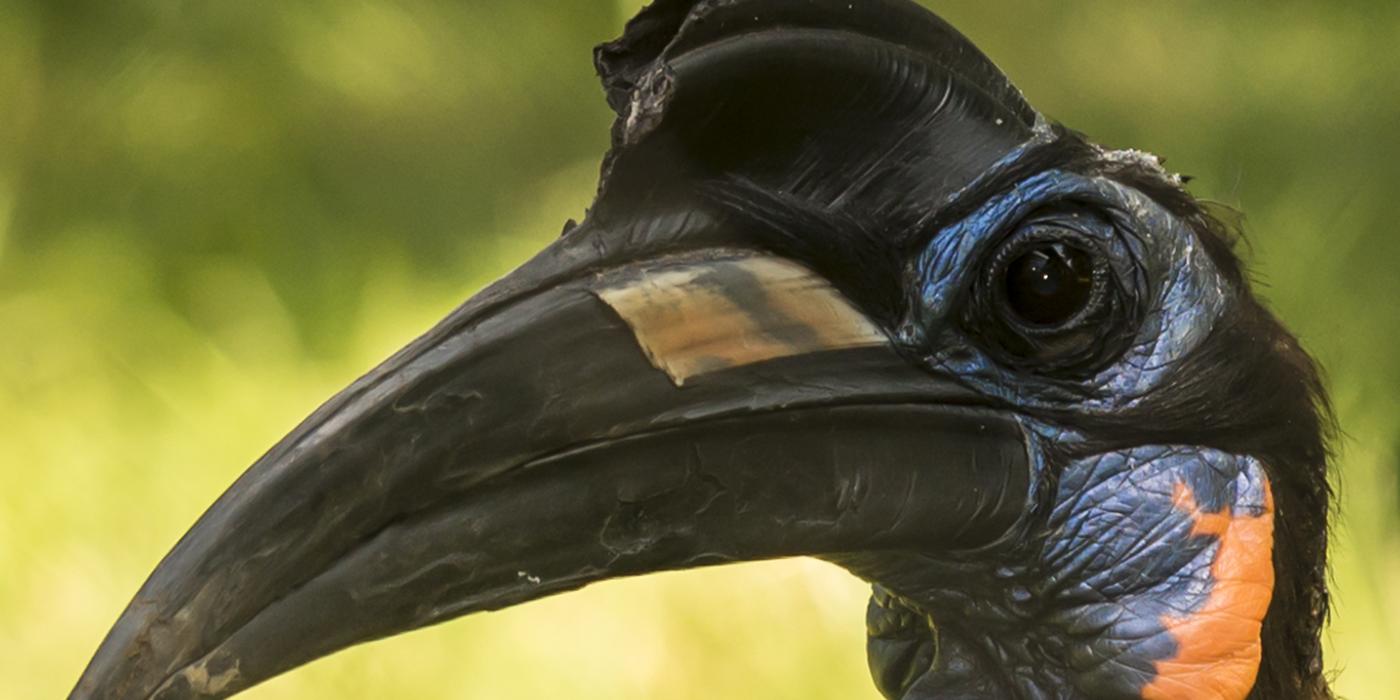
Abyssinian ground hornbills are monogamous animals, with males helping care for females and young during the incubation stage. Breeding time depends upon location, with pairs residing in Nigeria and Uganda breeding in January, Kenyan pairs breeding in November, and West African populations breeding in June-August. Nests are constructed in the cavities of trees, with rock holes or synthetic cavities utilized when trees are unavailable. Males prepare the nest cavity by lining it with dry leaves; females will then lay one or two eggs over the course of five days. Incubation lasts 37 to 41 days, with the male providing food for the incubating female.

Incubation for Abyssinian ground hornbills begins with the first egg, so one hatchling will mature more quickly and grow faster than its nest mate. Newly hatched chicks normally weigh about 2.5 ounces (70 grams), with both mother and father investing heavily in the hatchling’s future. The second hatched chick will often die of starvation as its larger sibling prospers, with the stronger hornbill chick sometimes growing five times its first-hatched weight in its initial four days. Parents will protect and provide food for their offspring, which will remain with the pair for up to three years. Abyssinian ground hornbills breed about once every three years, with on average one chick surviving to adulthood every nine years.






